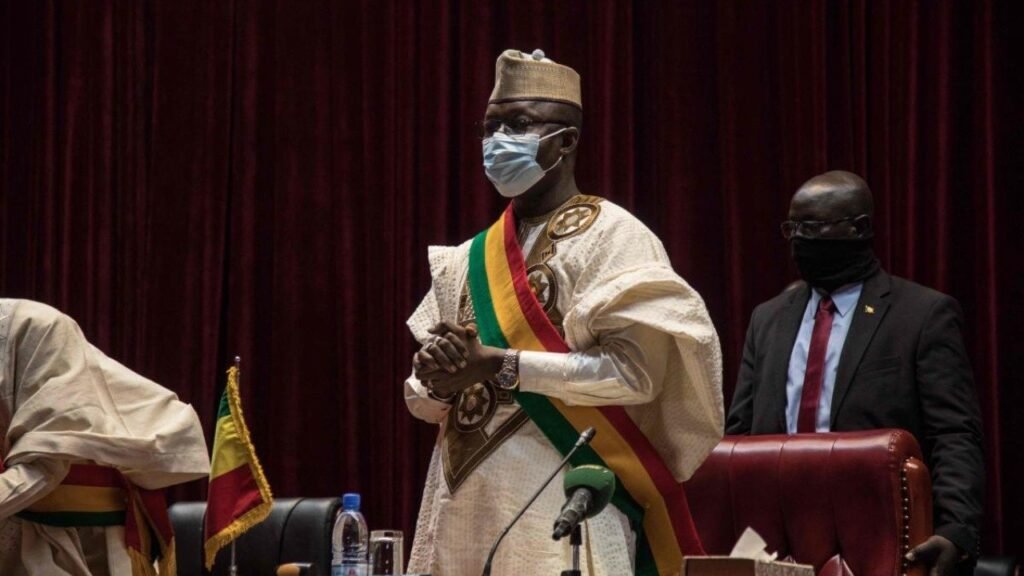Despite regional sanctions imposed on the country for postponed elections, Mali’s legislature adopted a bill on Monday allowing the military government to rule for up to five years, according to AFP journalists.
As part of the same bill, the army-dominated legislature ruled that the country’s temporary president would be barred from running in future democratic elections.
Mali’s military authorities promised to hold a ballot in February 2022 after executing a coup in the impoverished Sahel state in August 2020.
However, the military government recommended staying in power for six months to five years in December of last year, citing security reasons.
The Economic Community of West African States (ECOWAS) retaliated by imposing a trade embargo and closing its borders with Mali last month. The possible length of the transition has been deemed undesirable by the bloc.
Malick Diaw, the military president, and junta leader, receives a standing ovation from members of the National Transitional Council (NTC) in Bamako.
On February 21, 2022, members of the National Transitional Council gave Malick Diaw, the military president and military government leader, a standing ovation in Bamako.
The National Transitional Council, Mali’s 121-seat interim parliament, agreed on Monday to authorize the military government to rule for up to five years.
It also voted to prevent the interim president from running for re-election in the future.
According to AFP journalists present during the voting, none of the lawmakers who were present voted against the bill or abstained.
French troops are being withdrawn
The bill makes no mention of Mali’s interim president, Colonel Assimi Goita, leaving the door open for him to run for president if he stands down ahead of a future election.
The bill also makes no mention of when a subsequent election might be held.
Goita has stated that civilian authority will be restored, but he has refused to give a time frame.
Tensions with the military government contributed to France’s decision last week that it was withdrawing its troops from Mali under the Barkhane force, which is tasked with fighting armed groups in the Sahel.
The landlocked country of 21 million people has battled to suppress a deadly armed revolt that began in 2012 and extended to neighboring Burkina Faso and Niger three years later.
Thousands of military and civilians have been murdered, and two million people have been displaced as a result of the conflict, which has its epicenter in Mali.
ECOWAS said on Monday that its Mali mediator, former Nigerian President Goodluck Jonathan, will pay a visit to the capital Bamako on Thursday.
